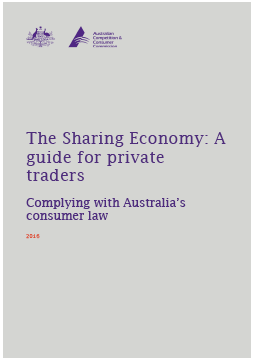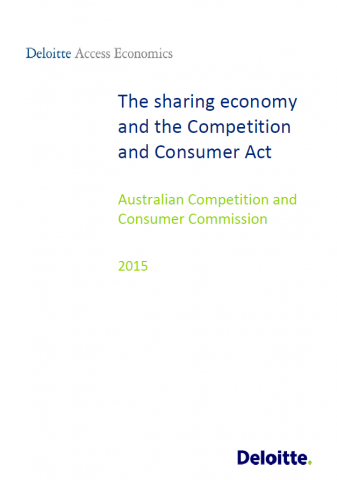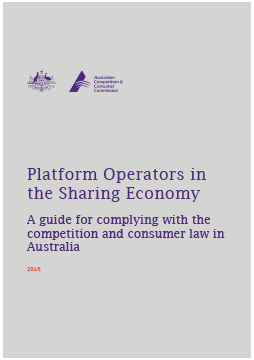On this page
How consumers can protect their rights when shopping online
When a consumer shops online, all the usual consumer rights apply.
The business must:
- follow all the usual consumer laws that apply to selling products and services, including the basic rights known as consumer guarantees
- not make false or misleading claims in advertising, on their own website, on social media or on other platforms. These rules also apply to what the business does with their online product reviews.
Whether a business is in Australia or overseas, consumers will have a better chance of resolving any problems with products or services if they buy from a business that:
- has a good reputation - check online reviews before purchase
- displays clear steps for solving problems and giving replacements and refunds
- displays clear systems for keeping consumers’ personal and financial information safe
- displays a phone number, a physical address and an Australian Business Number or other business registration number.
Consumers should keep copies of all documents, including emails, receipts, item descriptions and electronic records of auction bids.
In some situations, the consumer’s card provider may reverse a charge if the consumer paid by credit card and didn’t receive the product or service. Consumers should check with their card provider. Time limits may apply.
Services like PayPal can also issue refunds in some situations if the seller doesn’t resolve the issue. Check these service providers’ terms and conditions to see if and when these refund promises apply.
Overseas online businesses and purchases
When an online business is based overseas and provides goods or services directly to consumers in Australia, the business must follow the Australian Consumer Law. This includes rules on the consumer guarantees.
In practice, it can be difficult to get a repair, replacement or refund from an overseas business if there is a problem with a product or service, and Where to go for consumer help can only provide limited help.
When consumers are not covered by Australian Consumer Law
Consumers are not covered by the Australian Consumer Law if the business doesn’t directly offer their products and services in Australia.
For example, a consumer won’t be covered by the Australian Consumer Law:
- when buying from an overseas business if they have a product sent to an overseas address first, before having it forwarded to Australia
- if the transaction between the business and consumer occurred entirely overseas, for example when the consumer was also overseas.
Types of online businesses
There are many platforms that act as a marketplace for businesses and other people to sell their products to consumers. These online platforms can be on websites or apps.
As a consumer using these platforms you have consumer guarantees rights against the seller you buy from on the platform. For example, when you buy a product on eBay, the product comes from the seller, not from eBay. So, your consumer guarantees rights apply to the seller you buy from, not the platform itself.
If you make a purchase through a platform and the online seller doesn’t resolve a problem, the platform may be able to help, depending on the situation. You should contact the platform to check their policies in these situations.
Auction websites and apps
There are different types of online auction businesses, and different rules apply to each type.
Marketplace online auctions (such as eBay)
In marketplace online auctions, a business like eBay sets up the platform and provides rules and guidelines. From that point on, individual buyers and sellers mostly deal directly with each other.
When consumers buy products through a marketplace online auction business:
- it’s up to the seller of the product or service, not the owner of the platform, to resolve most problems
- if the seller is a private individual and not running a business, some consumer guarantees do not apply.
Traditional auctions (such as Grays)
With traditional auctions buyers and sellers do not deal directly with each other. Instead buyers and sellers deal with each other through an auctioneer (in this case, the online business) who acts as an agent for the seller.
Not all consumer guarantees apply when products are bought through a traditional auction, whether online or not.
However, consumers still have other rights when buying through a traditional auction process. For example, the online auction business can’t mislead consumers about things like the features or standard of the products, or their prices.
Auctions conducted by businesses
Some online businesses use auctions to sell their own products without using an agent. When this happens, all the normal consumer guarantees apply.
‘Buy it now’ option
Some auction sites give consumers an option to buy now without having to bid. If a consumer chooses to buy immediately, whatever the type of auction site, they have all the usual consumer rights, unless the seller is a private individual and not running a business.
Sharing economy and gig economy websites and apps
The sharing economy (also known as the gig economy) connects consumers to people who have products or services to sell, hire or lease via an online platform. It includes services such as Airbnb, Uber and Airtasker.
When using one of these services, it can be difficult to work out who to contact if there is a problem. For example, contacting the owner of the platform, the person providing the service, or both. Before using a platform to buy a product or service consumers should check the platform's policies on what to do if something goes wrong.
All the normal consumer rights will apply when purchasing gig economy services. For example, both the platforms and the businesses offering their products and services on the platforms can’t mislead consumers.
All the normal consumer guarantees also apply. Whether it is the platform, or a business supplying their product or service through the platform, that is required to meet particular consumer guarantees will depend on the situation.
If the person on the platform providing the product or service is a private individual and is not running a business, some consumer guarantees do not apply.
Sharing economy examples and case studies
Read these guides for more examples and case studies on the sharing economy.



Comparison websites and apps
Comparison websites and apps compare a range of different products or services from different sellers. These sites can be a useful online tool to help select a service or product to purchase. Comparison websites are sometimes called comparator websites.
Some comparison sites are government-run and independent of any commercial companies or arrangements. These include:
- Energy Made Easy
- state-run energy comparison websites
- PrivateHealth.gov.au.
Other comparison sites are owned and operated by businesses. Make sure you know how these sites work before relying on a comparison from them.
Comparison websites and apps must not mislead consumers.
When using a comparison website or app, there are steps you can take.
Know what is being compared
Comparison sites may not compare all the offers or products in the market. It may be useful to check what’s on offer across a range of comparison sites.
Check if there’s a commercial relationship
Comparison website operators may have commercial relationships with, or receive money from, businesses listed on their site. This can influence how highly a particular business rates in the comparison, or the extent it is featured at all. These commercial relationships are often disclosed in the terms and conditions section of the comparison site, or in disclaimers at the bottom of web pages.
Make sure you look for any such disclosures on the website prior to comparing any products or services.
Identify the site owner
Check that the site tells you the identity of the business that owns and operates it. Sometimes a comparison site is owned and operated by the same business that owns one or more of the products being compared on the site. This can mean it is not impartial and is less reliable.
Work out what you need and double-check what’s covered
- Make sure you check all factors important to you, including any non-price factors.
- Take a closer look at what is and isn’t covered in any recommendations in your search results.
- Check all fees and charges associated with a recommended result.
- The lowest headline price may not always be the lowest final price.
- You may need to check the service providers’ own websites for the full details of prices, additional fees, inclusions and exclusions. It may also be worth checking whether the offer, or a similar offer, is available directly on the service provider’s website, rather than purchasing through the comparison site.
Check the site’s privacy policy
Some comparison businesses may use your information for purposes other than comparing products. Make sure you check the privacy policy and are comfortable with how your data will be used before using the site.
Voucher or deal websites and apps
Websites like Groupon and Scoopon sell vouchers or deals that consumers can exchange for goods and services at discount prices. Many of these businesses require consumers to become members to access the vouchers or deals.
Before buying vouchers through these websites, consumers should always check:
- what they’re getting (or not getting) in the deal
- the voucher expiry date
- any blackout periods during which the voucher can’t be used
- whether the website will give a refund if the business supplying the products or services goes out of business before the voucher is used.
Online shopping scams
Scam activity is common online. At our Scamwatch website, you can learn the warning signs and how to protect yourself.



